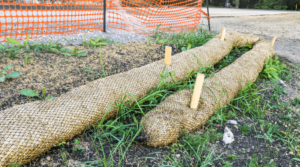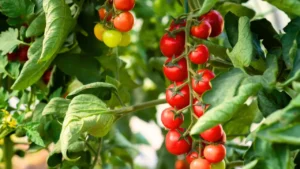
weed.jpg

Weed
Definition: A weed is any plant that grows where it is not wanted, often competing with cultivated plants for nutrients, water, and sunlight. Weeds can be native or introduced species and are typically characterized by their ability to reproduce rapidly and thrive in various environments.
Characteristics of Weeds:
- Rapid Growth: Weeds often exhibit vigorous growth rates, allowing them to outcompete cultivated plants.
- Adaptability: Weeds can thrive in diverse environmental conditions, including disturbed habitats, agricultural fields, and urban landscapes.
- High Reproductive Capacity: Many weeds produce copious amounts of seeds or vegetative propagules, facilitating their spread and colonization of new areas.
- Competitive Advantage: Weeds possess traits that give them a competitive edge over desired plants, such as efficient resource utilization and allelopathy (chemical inhibition of nearby plants).
Impact of Weeds:
- Crop Yield Reduction: Weeds compete with crops for essential resources, leading to decreased yields and economic losses for farmers.
- Increased Production Costs: Weed management efforts, including labor, herbicides, and equipment, contribute to the overall cost of agricultural production.
- Biodiversity Threat: Invasive weeds can outcompete native vegetation, disrupting ecosystems and threatening native plant species.
- Health Concerns: Some weeds, such as poison ivy and certain thistle species, pose risks to human and animal health due to their toxic properties.
Common Types of Weeds:
- Broadleaf Weeds: These weeds have leaves with broad, flat surfaces and include species like dandelions, lambsquarters, and pigweed.
- Grassy Weeds: Grass-like weeds with narrow leaves, such as crabgrass, goosegrass, and annual bluegrass.
- Sedge and Rush Weeds: These weeds resemble grasses but belong to different plant families and include species like yellow nutsedge and annual blue-eyed grass.
- Woody Weeds: Perennial weeds with woody stems, such as brambles (blackberry, raspberry) and tree-of-heaven.
Weed Management Strategies:
- Cultural Control: Practices like crop rotation, mulching, and proper irrigation can help suppress weed growth.
- Mechanical Control: Manual removal, mowing, tilling, and cultivation are effective for physically eliminating weeds.
- Chemical Control: Herbicides are chemicals designed to target and kill weeds selectively, but their use requires careful application to minimize negative impacts on the environment and non-target species.
- Biological Control: Introduction of natural enemies, such as herbivorous insects or pathogens, to suppress weed populations without relying on synthetic chemicals.
- Integrated Weed Management (IWM): A holistic approach that combines multiple control methods to achieve sustainable weed management while minimizing adverse effects on crop productivity and environmental quality.
Conclusion: Weeds pose significant challenges to agricultural productivity and ecosystem health, necessitating effective management strategies to mitigate their impacts. By understanding the characteristics of weeds and employing integrated management practices, farmers can minimize weed-related losses and maintain sustainable agricultural systems.
Fall off the barn roof and busted your keister? Life on the farm or ranch can be tough on the bum. Need a break? Laugh it off at FarmerCowboy.com, the #1 farm humor site. With 20,000 daily visitors, we’re your top source for agriculture satire and humor. Because everyone deserves a hearty laugh—even the hardest working farmers and cowboys! Join us and turn those long days into fun tales at FarmerCowboy.com.
Originally posted 2012-05-08 15:43:55.
Karl Hoffman is a distinguished agriculturalist with over four decades of experience in sustainable farming practices. He holds a Ph.D. in Agronomy from Cornell University and has made significant contributions as a professor at Iowa State University. Hoffman’s groundbreaking research on integrated pest management and soil health has revolutionized modern agriculture. As a respected farm journalist, his column “Field Notes with Karl Hoffman” and his blog “The Modern Farmer” provide insightful, practical advice to a global audience. Hoffman’s work with the USDA and the United Nations FAO has enhanced food security worldwide. His awards include the USDA’s Distinguished Service Award and the World Food Prize, reflecting his profound impact on agriculture and sustainability.






